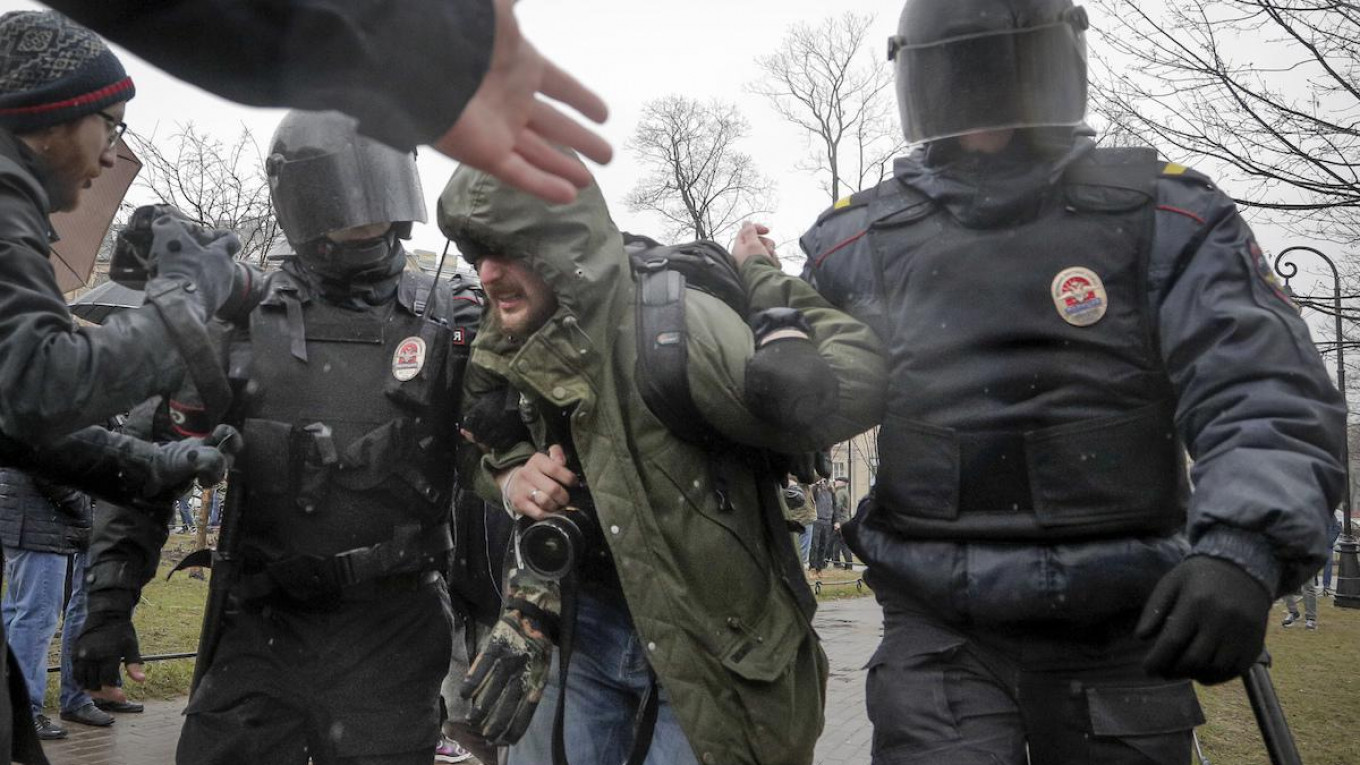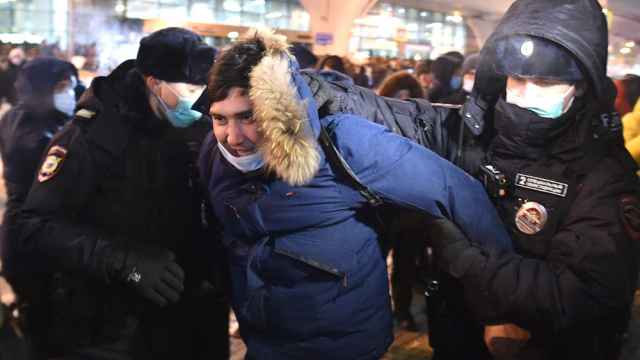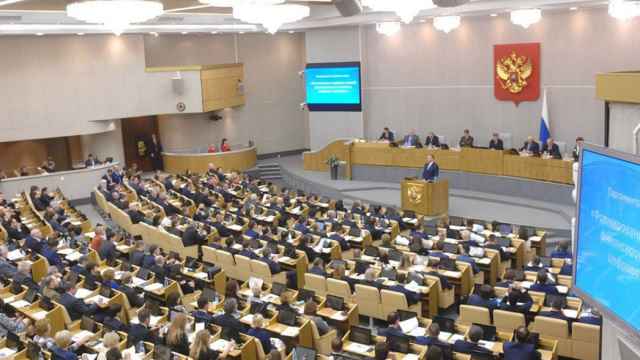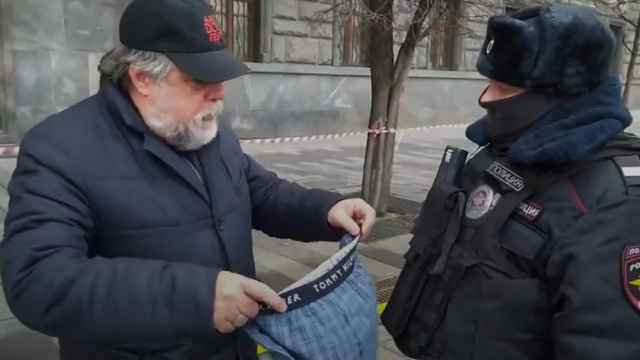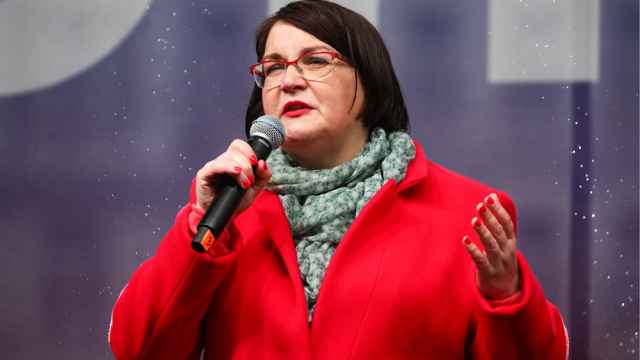The anti-Kremlin protests that have bubbled up in Russia in recent weeks pose no threat to Vladimir Putin’s reign. What Putin decides to do about them, however, might just be his undoing.
We don’t know exactly how many participated in Saturday’s ‘Enough’ protests. It was certainly smaller than the Navalny’s anti-corruption protests on March 26, but they were not small.
Judging by the number of people detained and the range of places where they were rounded up, the campaign orchestrated by Mikhail Khodorkovsky’s Open Russia seems to have gathered a few thousand active supporters (around 160 were detained at 11 protests throughout the country).
Those numbers may seem negligible, but think about it this way: When was the last time Khodorkovsky managed to get more than a few dozen people out into the streets?
That’s the thing about the recent rounds of protests in Russia: their impact is evolutionary, not revolutionary.
These protests demonstrate to activists, the Kremlin and anyone paying attention that the Russian political landscape isn’t quite what it was before. They show that Russians are prepared to take risks: never before have so many been willing to take part in rallies that weren’t approved by the state.
They also demonstrate a new ability to set the agenda. Unlike prior mobilizations, which were sparked by some insult or injury from the state, both the Navalny and Khodorkovsky’s protests were sewn from whole cloth: they brought people to the streets because they were angry about everything in general, rather than something in particular.
What’s more, the protests make plain the potential of the movements that Navalny and Khodorkovsky have (separately) built — the numbers of volunteers and activists they can rally and their geographic reach. The protests also demonstrate how easily the groups that rallied in 2011-12 can swing back into action.
It was, after all, Navalny’s presidential campaign and Khodorkovsky's now outlawed foundation that led people to the streets. But it was longstanding social media connections that helped spread the word and 2011-era activist monitoring groups like OVD Info [Police Info] and Rus Sidiashchaia [Russia Behind Bars] that helped get people out of jail.
Not everything under the sun is new, however. Both the anti-corruption and the ‘Enough’ protests pale in comparison to the movement emerging around the effort by the Moscow city government to evacuate and demolish 5-storey (and, potentially, other) buildings.
Judging by the size and intensity of activity on social media, we will soon see exactly what we should expect to see when the state intervenes so clearly and brazenly to upturn the lives of more than a million citizens.
This is something the Russian government does from time to time – think back to the benefits protests of 2004, for example, or the attempt to ban right-side drive cars in 2005, or the road tax that has led to rolling truckers’ strikes in recent years – and the resulting protests almost always force the authorities into retreat.
City Hall and the Kremlin have evidently forgotten the sit-ins that temporarily blocked the urbanization of South Butovo in 2006 – protests that were resolved only when the ring-leaders were mollified with flats on Kutuzovsky Prospekt.
What’s new this time isn’t the demonstrable appetite of Russian society to defend itself. It’s the evident inability of the government to conduct a rational cost-benefit analysis. If there is not a quick re-think, the political and economic costs of this endeavor could quickly exceed the government’s ability to pay.
All that said, the trigger points that will turn all of this evolution into revolution don’t exist.
For one thing, there’s still no real indication that anything like a critical mass of Russian citizens thinks things would be appreciably better under a Navalny presidency. Distaste for ‘Dimon’ is popular, and the ‘Nadoel’ meme is powerful – but there are a lot of things of which Russians are sick and tired, and precious few of them ever seem to go away, no matter who is in charge.
If Putin is in fact driven out by the street (and, while possible, that is not the likeliest of scenarios), it will not be because his citizens have discovered a new savior, but because they have – suddenly and unexpectedly – lost faith in the old one.
That prospect should focus the Kremlin’s mind on one critical question: how to fight back. Initial indications are that the government is leaning towards more coercion, rather than less.
If the Kremlin was content to let the 2011 protests run their course until crackdowns in May 6, 2012, it seems to have no such patience this time around. Many of those arrested in March and last weekend can expect to see real jail time. And as the chemical warfare against Navalny and others suggests, extra-legal measures are also very much in play — in a way they never were six years ago.
Going hard against the opposition might deter protesters and get Russians off the streets, but the history of high-risk activism around the world teaches a different lesson.
Yes, increasing risks does help keep people at home when movements are new and solidarity is still weak. But when the battle lines have long been drawn – as they have in Russia – escalation by the state tends to lead to greater commitment and an increased sense of ‘now-or-never’ urgency.
That may not be the Kremlin’s desired result.
Samuel A. Greene is Director of the Russia Institute at King’s College London and author of Moscow in Movement: Power and Opposition in Putin’s Russia.
A Message from The Moscow Times:
Dear readers,
We are facing unprecedented challenges. Russia's Prosecutor General's Office has designated The Moscow Times as an "undesirable" organization, criminalizing our work and putting our staff at risk of prosecution. This follows our earlier unjust labeling as a "foreign agent."
These actions are direct attempts to silence independent journalism in Russia. The authorities claim our work "discredits the decisions of the Russian leadership." We see things differently: we strive to provide accurate, unbiased reporting on Russia.
We, the journalists of The Moscow Times, refuse to be silenced. But to continue our work, we need your help.
Your support, no matter how small, makes a world of difference. If you can, please support us monthly starting from just $2. It's quick to set up, and every contribution makes a significant impact.
By supporting The Moscow Times, you're defending open, independent journalism in the face of repression. Thank you for standing with us.
Remind me later.


